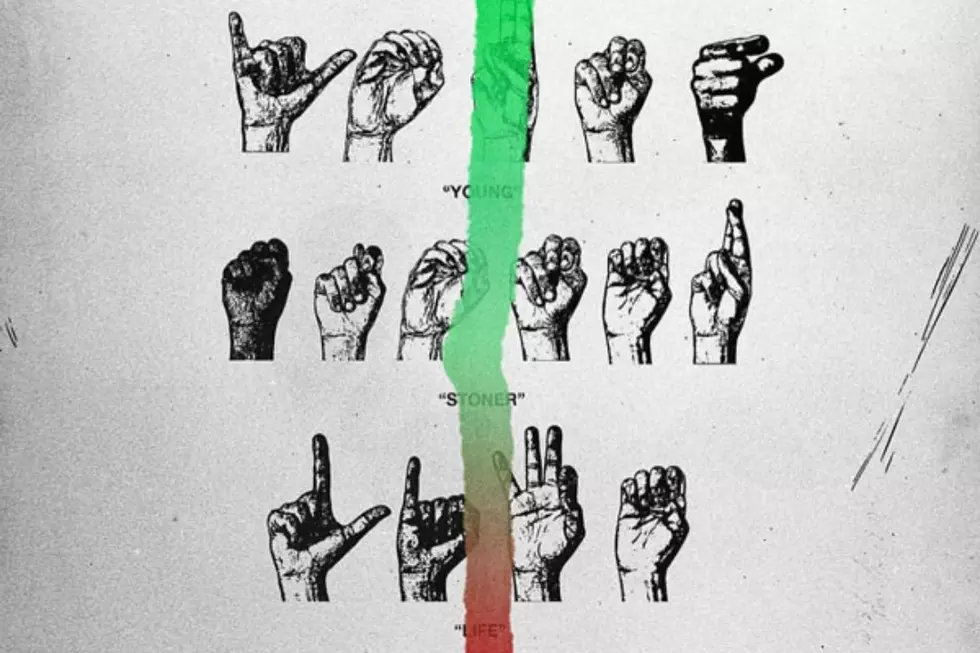
Slaughterhouse Show Promising Signs Of Things To Come On ‘House Rules’ Mixtape
Listening to a Slaughterhouse record can be incredibly frustrating. It’s often rather difficult not to get bogged down by the seemingly infinitely knotty and intricate raps that regularly trail off into oblivion. There is no disputing the group’s acumen but such unrelenting commitment to drilling lyricism over palatability can make even the most well versed rap purist weary. By now, it’s common knowledge that Royce Da 5’9”, Joe Budden, Crooked I, and Joell Ortiz are four of the most formidable technicians of any era – if for no other reason than the fact that they beat you over the head with it in every single song – but that doesn’t always lend itself to the most efficient songwriting or hit making. The group is notorious for producing records that are disjointed and phoned in (sometimes literally), and their discography has grown predictably prolix because of it. With House Rules, however, the four horsemen abandon their patented formula of simply striving to out-rap each other in favor of a more enjoyable model: operating as a consolidated contingent that is both devastatingly lyrical and methodical without being oppressive.
In releases past, the members of Slaughterhouse have combatively rapped like hyenas grappling over the same animal carcass, savagely clawing to make sure they each got their share and all simultaneously staking their individual claims as head of the pack. They weren’t so much a group as they were four soloists rapping in close proximity. Competition is good but it doesn’t always produce the best music. House Rules sets a new tone, one that feels far less like subliminal infighting and more like synergy. At ten tracks, the project is streamlined for cohesion, varying song lengths and structures throughout in an effort to construct the optimal product. If this is a test run for Slaughterhouse’s third studio album, Glass House, which will be executive produced by sound savant Just Blaze, then we may finally be getting the album we all signed up for when the Internet forum and fate brought the prolific but marginalized MCs together in ’08. The tape is Slaughterhouse’s first successful jump into dynamic music making.
For the most part, House Rules’ major theme is melancholia. It hones in on hardship and anguish in a minor key that rings for the duration of the tape despite a diverse array of production credits ranging from Nottz to Harry Fraud to !llmind. One key difference between Slaughterhouse’s second mixtape and the rest of fearsome foursome’s discography is that here each individual rapper gets his own moment to breath as an artist: Joell produces the borough-championing “Life In The City,” Crooked I laments with “Struggle,” Budden weighs opportunity cost in “Trade It All,” and Royce provides candor for “Keep It 100.” These brief asides establish context and showcases why each rapper as a valued member of the Slaughterhouse unit as opposed to limiting them to cogs in a systematic, hyper-lyrical machine.
There is great balance on House Rules with only a handful of tracks being molded in the likeness of the lengthy, verbose Slaughterhouse prototypes of old – and even a record like “Offshore,” at 9:36 minutes, feels like a welcome addition to the project. Under the tutelage of Just Blaze the four MCs seem to finally be coming together and there is a noticeable shift in camaraderie at least on wax: less pursuit of solo rap supremacy and more commitment to team-oriented song crafting. The traditional lyricism is still there, but it feels less dense and compact.
The moments that ring the truest on House Rules are the ones that deviate furthest from the established norm. However, they all do so differently. Together they interlock into what is the most stunning sonic tapestry Slaughterhouse has woven to date. “Illmind Interlude” shakes up the 4x16 relay rap structure the group has developed and instead opts for a more easily digestible two-pronged attack from a fiery Crooked I and a nimble Joell Ortiz. The haunting “I Don’t Know” finds the gang (sans Crooked) threading loose concepts on change together with great dexterity. The gritty “SayDatThen” is probably the best listen on the tape and it features a centralized theme of outspokenness over slapping Nottz drums. As a whole, House Rules is probably the best Slaughterhouse has ever been as an entity and proof that this system can be effective. If this is what we can expect from Slaughterhouse in 2014, there’s a lot to be excited about.—Sheldon Pearce
More From XXL









